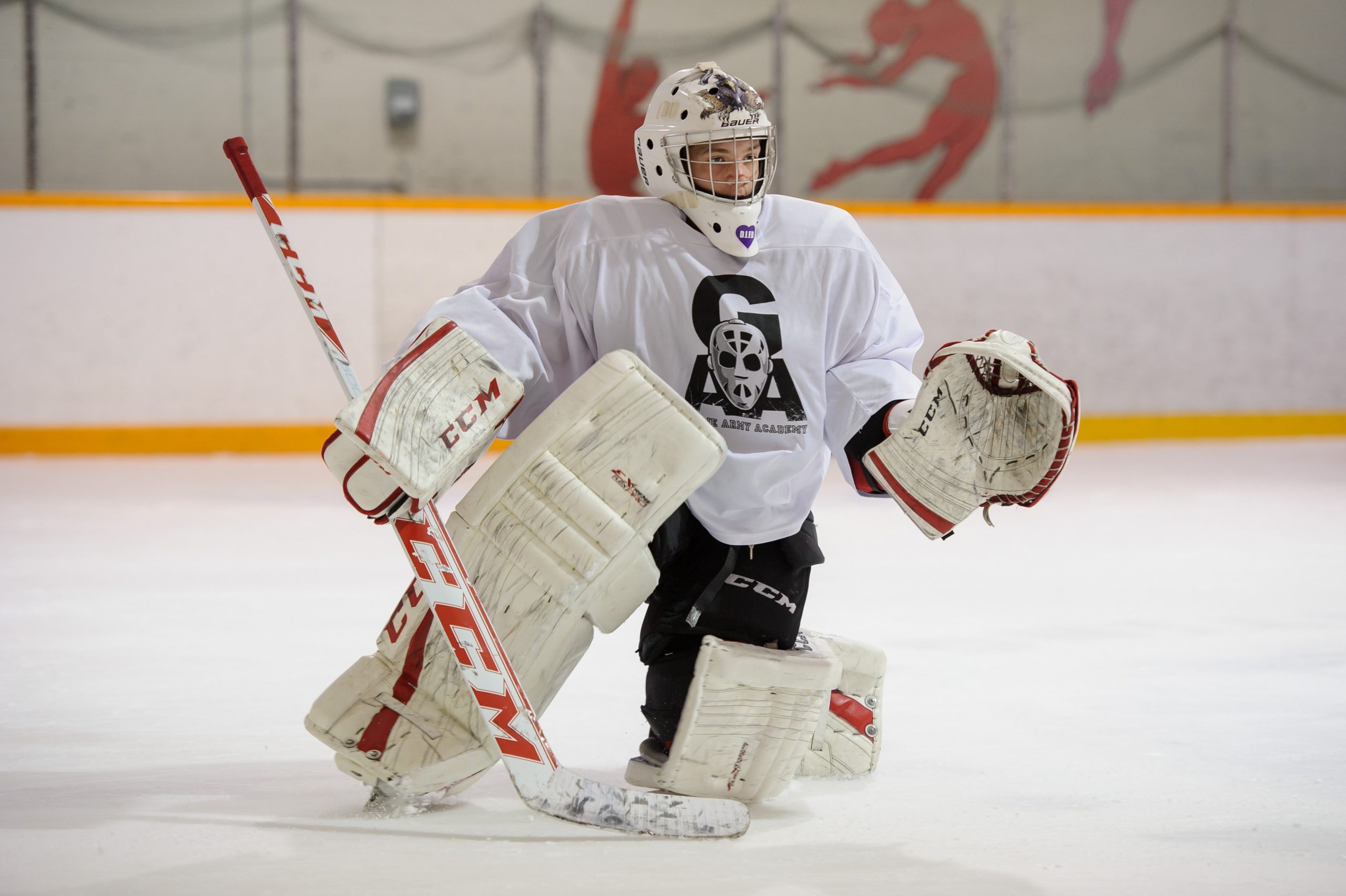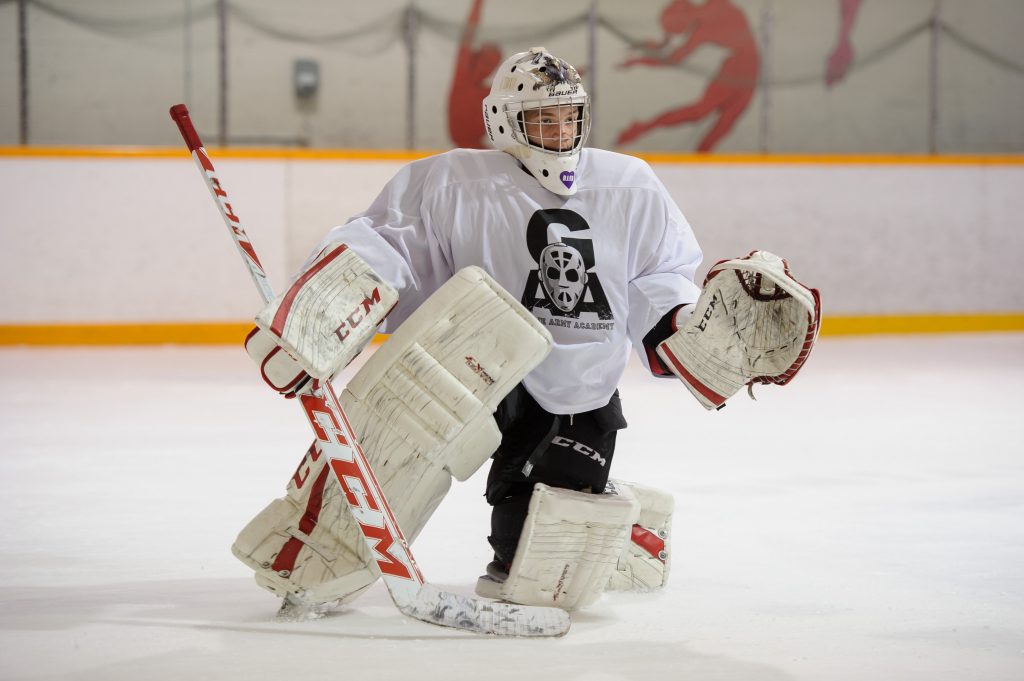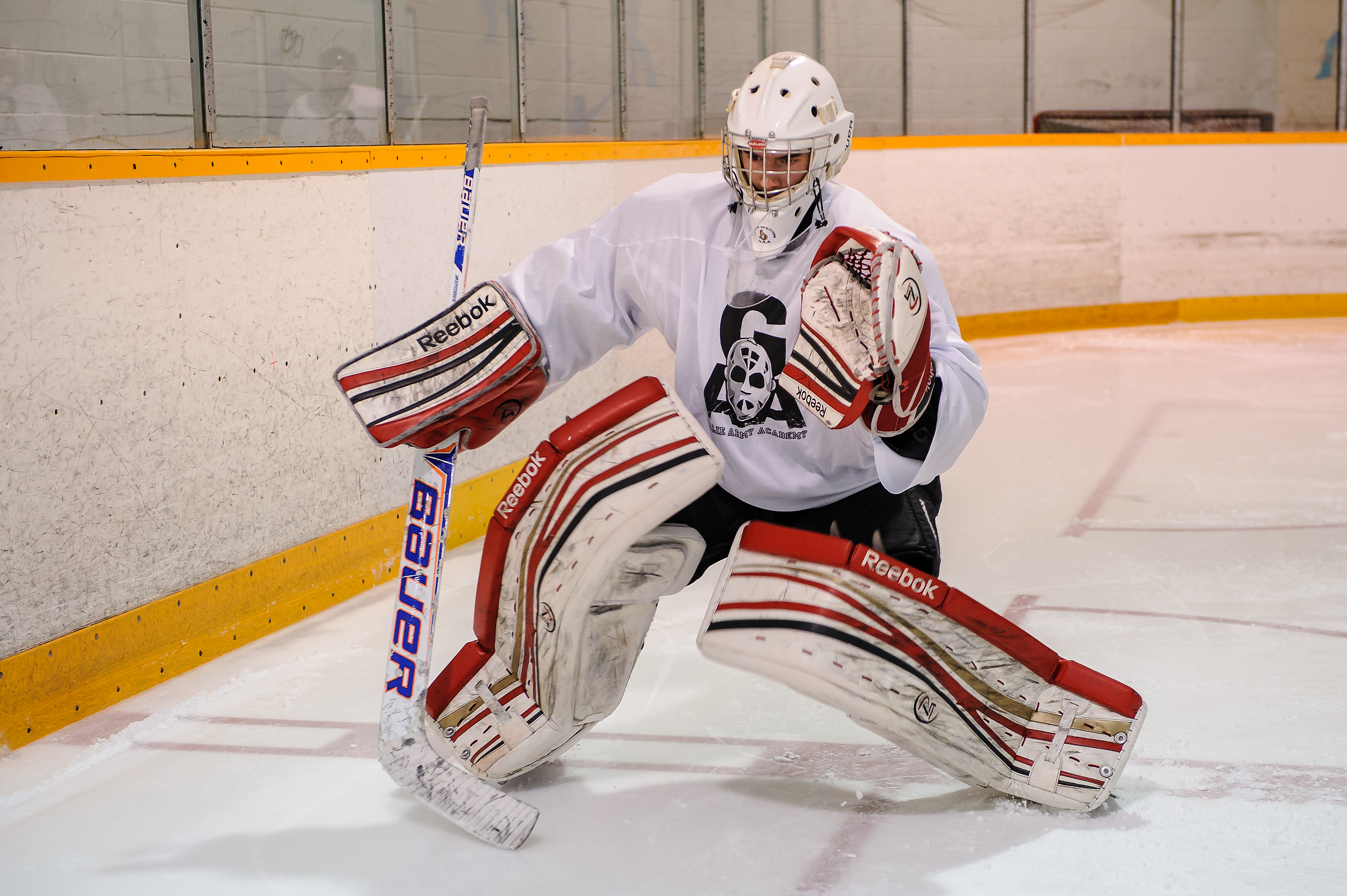
Goalie Training Tips: Teaching the Butterfly Slide
Teaching young goaltenders how to transition into a butterfly slide can be challenging for any coach during goalie training. For young goaltenders, learning how to transition effectively goes against everything which they’ve grown accustom to in their earliest years of skating development. Therefore, it’s only natural that some goaltenders will feel reluctant to allow their edges to slip out from under them during team practices, goalie training sessions, and in games.
 Balance
Balance
In order to ensure that goalies continue to cover as much of the net as possible even when attempting to cover the bottom portion with a butterfly or butterfly slide effectively, goaltenders need to first be well balanced in their Ready Stance.
Ready Stance
The Ready Stance, like many aspects of the goaltender’s position is all about angles. But in this case, it’s all about the angles of knee bends, angles of the tilt of the pelvis, and whether or not the position of the goaltender’s arms will throw the goaltender’s balance off.
In order to ensure that the upper body’s weight distribution remains over top of their knees rather than falling over forward or backward when attempting a butterfly drop or slide, the goaltender needs to first feel comfortable on their edges, and build balance through in-crease standing movements. This is one of the many reasons why we implement Goaltender-Specific Power Skating into our goalie training programs.
 Edge Placement
Edge Placement
Young goaltenders who strap on the pads for the 1st time tend to keep their legs closer together. Ideally, the goaltender will want to work toward flaring their legs out so that their skate blades are a further distance apart than their shoulders.
This can result in reluctance to bend the knees because it’s simply easier for goalies to widen their stance, planting their inside edges into the ice by remaining straight legged. Unfortunately, this will limit the goaltender’s ability to be mobile or keep up with the speed of the puck. In order to build confidence in a goaltender’s skating ability and balance within their ready stance, during goalie training opportunities, start off small by having them scrape the surface of the ice with shuffles in order to track the puck when carried.
Once the goaltender begins to show signs of keeping up with the speed of the puck, continue to place consistent emphasis on bending their knees, while using their inside edges.
By building confidence in the goaltender’s ability to move laterally, coaches can begin to add butterfly slide transitions.
 The Slide Transition
The Slide Transition
Once the goaltender is confident in the lateral movement on their edges, and begins to show signs of stability and balance, it may be a good time to begin teaching the fundamentals of sliding.
Teaching Point
The key to teaching a butterfly slide is to explain that the goaltender’s primary objective is to keep up with the speed of the puck while maximizing coverage of the bottom of the net. Therefore, in order to do so, goaltenders should look to take away the bottom of the net as soon as possible after recognizing a close-proximity scoring opportunity. Ideally, the goal of the goaltender should be to remain square to the puck at all times.
Letting Go
In order to ensure maximum coverage along the ice, while enabling the goaltender to maximize their sliding distance when necessary, they must be prepared to shift their balance from both feet, to only one foot, while simultaneously allowing their leading leg’s skate edge to leave from gripping the ice surface.
As the goaltender recognizes that their skate blade is no longer on the ice, they simply have to go with it by allowing the rest of their lead leg to come into contact with the ice.
 Timing the Push
Timing the Push
While the leading leg’s knee begins its descent toward the ice, the other leg may push laterally. As soon as this leg becomes fully extended, the pushing leg’s knee should be brought down to the ice as well following as close as possible to the lead leg’s knee. This will maximize balance and eventually enabling the goaltender to adjust their weight distribution more effectively to angle their body while in a sliding motion.
We hope that the information above has helped to increase your understanding of the steps necessary to teach a butterfly slide transition. If you have any questions or concerns, please do not hesitate to let us know by contacting us, and we’ll be happy to help.
For more goalie training tips and tricks, please check out more of our blog posts, or join us at any of our year-round programs.


Leave a Reply